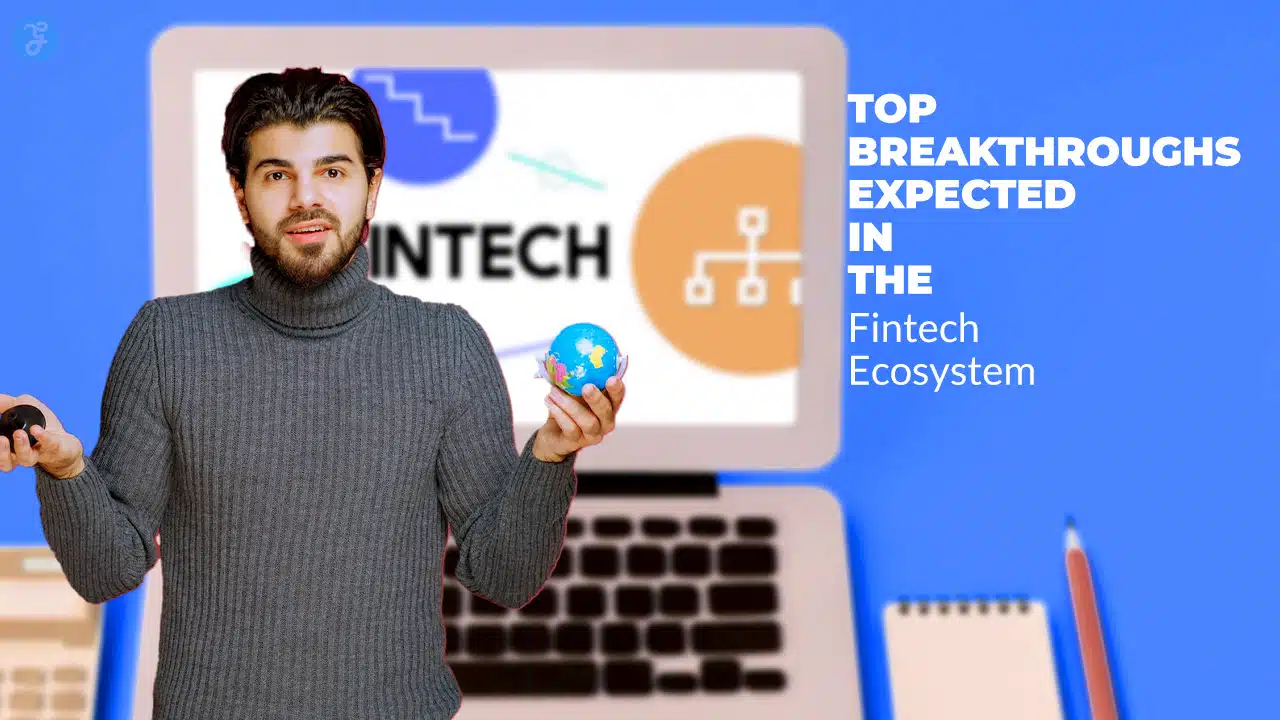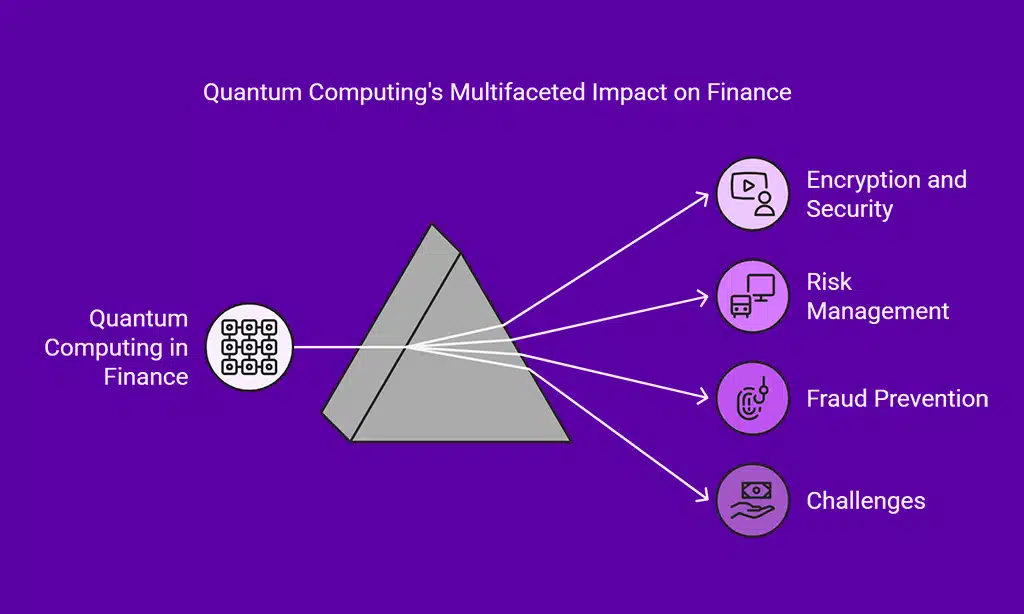The financial technology (fintech) landscape is evolving at an unprecedented pace, reshaping how businesses and consumers interact with financial services. From artificial intelligence-driven banking solutions to the rise of blockchain-powered transactions, the fintech revolution is creating groundbreaking opportunities.
The sector is projected to grow significantly, with global fintech investments exceeding $210 billion in 2023. As digital transformation accelerates, financial institutions and startups alike must stay ahead of the latest innovations.
In this article, we delve into the Top 10 Breakthroughs Expected in the Fintech Ecosystem, offering insights into the innovations set to redefine the industry. Whether you’re a fintech enthusiast, investor, or industry professional, understanding these advancements is crucial for staying ahead in the digital financial era.
1. AI and Machine Learning in Fintech
Artificial intelligence (AI) and machine learning (ML) are revolutionizing financial services, enabling businesses to automate complex processes, enhance decision-making, and improve customer interactions.
AI-driven solutions are being deployed across banking, insurance, and investment sectors, drastically reducing manual work and increasing efficiency. From robo-advisors to intelligent chatbots, AI is paving the way for smarter, more responsive financial services.
Role of AI in Financial Services
| Feature | Benefit |
| AI-powered chatbots | Provide instant customer support, reducing operational costs |
| Robo-advisors | Offer automated, data-driven investment recommendations |
| Fraud detection | Identifies unusual patterns and prevents financial crimes |
Personalized Banking with Machine Learning
- AI-driven personalization allows banks and fintech platforms to analyze customer behavior, offering tailored financial products.
- Smart algorithms assess spending habits to recommend savings plans, credit limits, and investment opportunities.
- Enhanced customer experience through automated, real-time financial insights.
AI-Driven Fraud Detection
- AI systems detect and prevent fraudulent activities by analyzing transaction patterns.
- Machine learning models improve security by flagging suspicious transactions in real-time.
- Biometric authentication and AI-powered risk assessment reduce fraud risks.
2. Blockchain Beyond Cryptocurrencies
Blockchain technology is expanding beyond cryptocurrencies, revolutionizing various aspects of financial services, including payments, smart contracts, and supply chain financing.
As institutions explore decentralized finance (DeFi) solutions, blockchain adoption is expected to drive transparency, security, and efficiency in financial transactions. Governments and banks are actively exploring ways to implement blockchain solutions in their operations.
Decentralized Finance (DeFi) Expansion
| Aspect | Impact |
| Peer-to-peer lending | Removes intermediaries, reducing costs |
| Yield farming | Maximizes returns for cryptocurrency holders |
| Liquidity pools | Enhances accessibility to funds for users |
Smart Contracts Enhancing Security
- Automating contract execution, reducing disputes, and improving transparency.
- Used in insurance, supply chain finance, and real estate transactions.
- Eliminates third-party intervention, ensuring fair execution.
Cross-Border Payments with Blockchain
- Reduced transaction costs and processing time.
- Enhanced security and transparency in international remittances.
- Increasing adoption by financial institutions to streamline global payments.
3. Rise of Central Bank Digital Currencies (CBDCs)
Central Bank Digital Currencies (CBDCs) are gaining traction worldwide as governments and financial institutions explore digital alternatives to physical cash. CBDCs aim to improve monetary policy effectiveness, reduce reliance on private cryptocurrencies, and enhance financial inclusion.
Nations such as China, Sweden, and the Bahamas have already launched pilot programs, setting the stage for widespread adoption.
Global Adoption of CBDCs
| Country | Status |
| China | Launched digital yuan pilot programs nationwide |
| Sweden | Testing e-krona as a potential replacement for cash |
| Bahamas | Fully implemented the Sand Dollar as a CBDC |
Impact on Traditional Banking
- Potential shift from traditional bank deposits to CBDCs.
- New regulatory frameworks for banking institutions.
- Enhanced financial inclusion through state-backed digital wallets.
Regulatory Challenges and Opportunities
- Need for cybersecurity measures and compliance policies.
- Balancing financial inclusion with privacy concerns.
- Potential collaboration between central banks and fintech firms.
4. Embedded Finance Revolution
Embedded finance is transforming the way consumers and businesses interact with financial services by integrating them directly into non-financial platforms. This trend allows companies outside the traditional banking sector to offer payment processing, lending, and insurance services seamlessly within their platforms.
The growth of e-commerce, ride-sharing apps, and digital marketplaces has fueled the expansion of embedded finance. Industry leaders like Shopify, Uber, and Amazon are at the forefront of this movement, embedding financial solutions to enhance customer convenience.
Seamless Payment Integration in Non-Financial Platforms
| Platform | Embedded Finance Service | Impact |
| Uber | In-app payments & driver financial services | Enhances user experience & driver retention |
| Shopify | Integrated merchant financing & payment processing | Helps businesses access capital easily |
| Amazon | BNPL & embedded credit options | Increases customer purchasing power |
Growth of Buy Now, Pay Later (BNPL) Services
- Rapid adoption among millennials and Gen Z consumers.
- Fintech companies like Klarna, Afterpay, and Affirm leading the BNPL revolution.
- Increased partnerships between retailers and BNPL providers to boost sales.
Embedded Insurance and Lending
- Insurance services integrated within ride-sharing and e-commerce platforms.
- AI-driven underwriting models improving risk assessment for loans.
- Companies like Tesla offering embedded insurance for vehicle buyers.
5. The Evolution of Digital Identity and KYC
Digital identity verification is crucial for the fintech sector, enabling secure transactions while preventing fraud. As cyber threats rise, traditional KYC (Know Your Customer) processes are being replaced by AI-powered verification and blockchain-based digital IDs. These innovations ensure security while simplifying onboarding experiences for users.
AI-Driven Identity Verification
| Method | Benefit |
| Facial recognition | Enhances security with biometric authentication |
| Document verification | Reduces fraud with AI-powered validation |
| Behavioral analytics | Detects anomalies in user behavior |
Blockchain-Powered Digital IDs
- Decentralized identity solutions enhancing user control over personal data.
- Blockchain reducing reliance on centralized data storage, minimizing breaches.
- Use cases in financial services, government IDs, and healthcare records.
Biometric Authentication in Fintech
- Fingerprint, voice, and facial recognition becoming mainstream in banking apps.
- Apple Pay and Google Pay leveraging biometrics for seamless transactions.
- Increased consumer trust through enhanced security measures.
6. Open Banking and API Economy
Open banking initiatives are enabling customers to share financial data securely with third-party providers, leading to innovative new services. The use of application programming interfaces (APIs) has accelerated collaboration between banks and fintechs, fostering competition and improving customer experiences.
As open banking policies gain global traction, they’re driving the development of more personalized and efficient financial solutions.
How Open Banking is Reshaping Finance
| Key Feature | Benefit |
| Data sharing via APIs | Enables better insights for personalized services |
| Third-party provider access | Boosts competition and innovation in financial services |
| Customer control | Empowers users to manage and share their financial data |
API-Driven Financial Services
- Integration of multiple financial products on a single platform.
- Easier access to tailored lending, investment, and payment services.
- Accelerated development of financial apps and services by fintechs.
Customer Benefits and Data Privacy Concerns
- Improved customer experience with innovative banking tools.
- Heightened focus on data security and compliance with privacy regulations.
- Transparent consent frameworks to build trust with users.
7. Quantum Computing in Financial Services
Quantum computing has the potential to transform the financial industry by solving complex problems much faster than classical computers. This breakthrough technology can optimize portfolio management, risk analysis, and fraud detection, among other critical tasks.
While still in its early stages, quantum computing is set to revolutionize fintech by enhancing both security and efficiency.
Potential Impact on Encryption and Security
| Use Case | Impact |
| Quantum cryptography | Provides unbreakable encryption methods |
| Financial data protection | Increases resilience against cyberattacks |
| Fraud prevention | Detects anomalies with advanced computational power |
Enhancing Risk Management and Fraud Prevention
- Improved accuracy in risk models for credit scoring and insurance pricing.
- Faster detection of fraudulent transactions through advanced pattern recognition.
- Real-time simulations for stress testing financial systems.
Challenges in Implementing Quantum Solutions
- High costs and complex infrastructure requirements.
- Need for specialized talent to develop and manage quantum algorithms.
- Regulatory and compliance hurdles as the technology matures.
8. Sustainable and Green Fintech
The rise of sustainable fintech solutions reflects a growing focus on environmental, social, and governance (ESG) principles. From green investing platforms to carbon tracking tools, fintech is helping consumers and businesses align their financial activities with environmental goals.
This shift towards eco-conscious financial services is driven by both consumer demand and regulatory pressures.
Rise of ESG (Environmental, Social, and Governance) Investing
| Platform | Feature | Benefit |
| Carbon-neutral banks | Offset their environmental impact | Attract eco-conscious customers |
| Green investment apps | Allow users to invest in ESG funds | Align portfolios with personal values |
| Blockchain for ESG reporting | Provides transparent and traceable data | Ensures accountability in ESG initiatives |
Fintech’s Role in Carbon Tracking and Offsetting
- Tools that help businesses measure and reduce their carbon footprints.
- Platforms facilitating the purchase of carbon credits for offsets.
- Transparent reporting on environmental impacts, enhancing trust with stakeholders.
Green Digital Banking Solutions
- Paperless banking and digital statements to reduce waste.
- Rewards programs for customers engaging in sustainable practices.
- Partnerships with NGOs to support environmental projects.
9. The Role of 5G in Fintech Innovation
The rollout of 5G networks promises to transform fintech by enabling faster, more reliable connections. This ultra-low latency technology supports seamless mobile banking, real-time payments, and advanced data analytics. With enhanced connectivity, fintech companies can deliver smoother user experiences and reach previously underserved regions.
Enhancing Real-Time Transactions
| Benefit | Example |
| Ultra-fast payment processing | Immediate fund transfers |
| Improved mobile wallet performance | Faster NFC and QR code transactions |
| Reduced downtime | Higher uptime for online banking platforms |
Improving Mobile and Contactless Payments
- Expansion of digital wallets like Apple Pay and Google Pay.
- Increased use of QR codes for seamless in-store payments.
- Enhanced security features for contactless transactions.
5G’s Impact on Financial Inclusion
- Connectivity for rural and remote areas, enabling access to digital banking.
- Increased availability of microfinance solutions via mobile apps.
- Enhanced education and awareness about digital financial tools.
10. The Growth of Metaverse and Web3 in Fintech
The emergence of the metaverse and Web3 is opening new frontiers in fintech, blending virtual environments with decentralized finance (DeFi) and blockchain technologies.
Virtual banks, tokenized assets, and digital identities within the metaverse are creating a novel ecosystem for financial transactions. This convergence of VR, AR, and blockchain is shaping the future of digital finance.
Virtual Banks and Metaverse-Based Financial Services
| Feature | Example |
| Virtual branches | Interactive VR banking experiences |
| Avatar-based customer support | Personalized financial advice within virtual worlds |
| Gamified financial education | Engaging platforms teaching money management |
NFTs and Tokenization in Fintech
- Non-fungible tokens (NFTs) used as collateral for loans.
- Tokenization of real-world assets like real estate and art.
- Enhanced liquidity through token-based trading platforms.
The Future of Decentralized Financial Ecosystems
- Increased use of DeFi platforms for lending, borrowing, and trading.
- Interoperable blockchains enabling seamless asset transfers.
- Growth of community-driven finance models, supported by DAOs (decentralized autonomous organizations).
Takeaways
As we move forward, these top 10 breakthroughs expected in the fintech ecosystem signify more than just technological advancements—they represent a profound shift in the way financial services are delivered, accessed, and experienced.
From the integration of artificial intelligence and blockchain to the rise of embedded finance and quantum computing, each trend plays a pivotal role in shaping a more inclusive, efficient, and secure financial future.
Fintech is no longer a niche industry; it’s a global movement transforming every aspect of finance. By embracing these innovations, businesses can streamline their operations, enhance customer experiences, and stay competitive in a rapidly changing market. Meanwhile, consumers can enjoy greater financial inclusion, improved security, and more personalized services.
As these breakthroughs unfold, the fintech ecosystem will continue to drive economic growth, foster innovation, and redefine how we think about money. The opportunities are vast, the potential is limitless, and the future of fintech has never looked brighter.





































